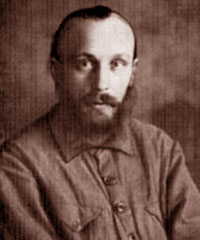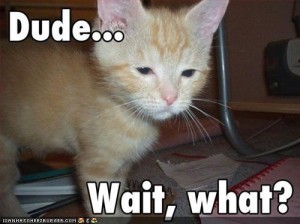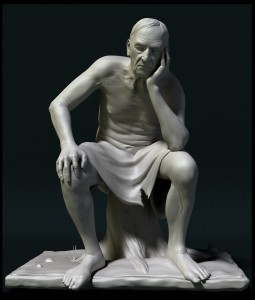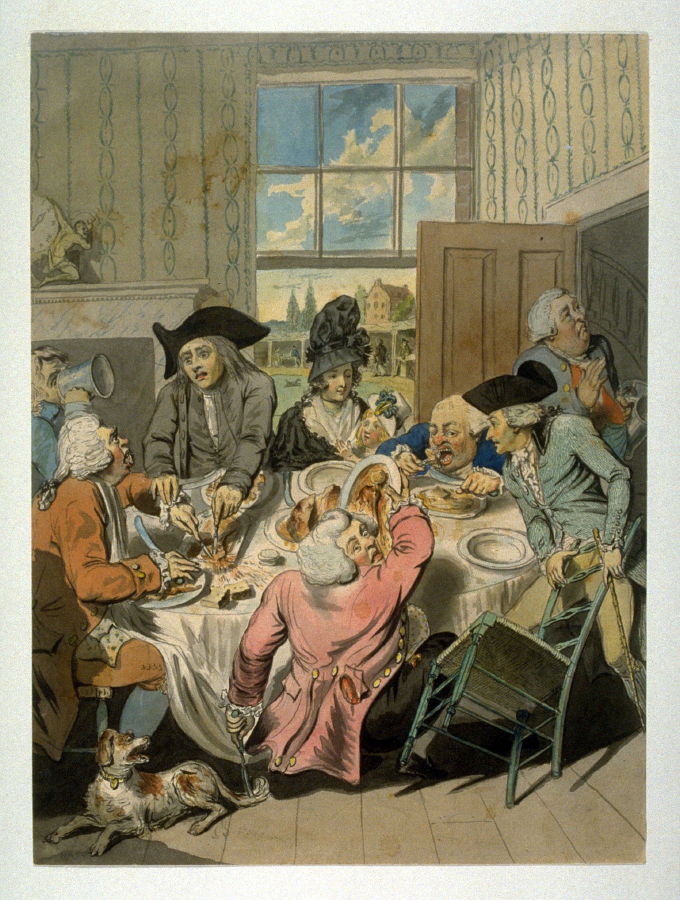By Gideon Hess
It is a peculiar feature of early modern fiction, in contrast to a lyric poem or an epic of an earlier period, that it does not project an authoritative voice of ideology. Aphra Behn’s The Fair Jilt, a story that, in its broad strokes, one could imagine as a clear-cut morality tale becomes, through the peculiarities of narration mandated by novelistic form, a much more ambiguous text.
I imagine that if The Fair Jilt were narrated as a long-form epic in the stentorian voice of Homer, it would come across as a clear villainization of desire, irreligiosity, and female sexual empowerment. But reading the novel version, this message is not communicated without complication.
Let’s go through the story and you’ll see what I mean.
The Fair Jilt, first published in 1688, tells the story of Miranda, a beautiful gentlewoman who uses her sexual appeal and guile to entrap men. The story makes use of the typical framing device of early modern fiction, ‘my friend told me.’ Behn seeks to establish authority over the story, “Part of which I had from the Mouth of this unhappy great Man, and was an Eye-Witness to the rest” (Behn 70). Before the story is even begun, we have a story whose authority is undercut for having been cobbled together from multiple sources.
Miranda is struck by the beauty of a young friar, Henrick, whom she sees at church. Her servant happens to know the man’s background, which she proceeds to tell: Henrick is actually a foreign nobleman by birth. He fell in love with a beautiful woman, but his brother was envious and schemed to have her for himself. The brother engaged to have Henrick killed, but Henrick is only wounded; surviving, leaves the court at which he is no longer welcome. The woman, eventually consigned to marry the brother, dies of despair.
OK. Fine. But isn’t it weird that Miranda’s maid knows this level of detail about Henrick’s plight? Here’s how it is narrated, in the maid’s voice:
“After a thousand Reflections on his hard Fate, and bemoaning himself, and blaming his cruel Stars, that had doom’d him to die so young, after an Infinity of Sighs and Tears, Resolvings and Unresolvings, he, on the sudden, was interrupted by the trampling of some Horses he heard, and their rushing through the Boughs, and saw four Men make towards him: He had not time to mount, being walk’d some Paces from his Horse. One of the Men advanced, and cry’d, Prince, you must die—I do believe thee, (reply’d Henrick) but not by a Hand so base as thine: And at the same Time drawing his Sword, run him into the Groin. When the Fellow found himself so wounded, he wheel’d off and cry’d, Thou art a Prophet, and hast rewarded my Treachery with Death. The rest came up, and one shot at the Prince, and shot him in the Shoulder; the other two hastily laying hold (but too late) on the Hand of the Murderer, cry’d, Hold, Traytor; we relent, and he shall not die. He reply’d, ’Tis too late, he is shot; and see, he lies dead. Let us provide for ourselves, and tell the Prince, we have done the Work; for you are as guilty as I am. At that they all fled, and left the Prince lying under a Tree, weltering in his Blood.” (84-85)
This is patently not plausible. The play-by-play is in the mode of a contemporary action film, in which we accept the camera’s reliability, or of the gory tales of a classical epic, in which we trust the authority of the bard who knows all. But here, in the early historical development of English narrative prose fiction, we have an author who is anxious to establish her grounds for knowing anything about the story at all, who has a coincidentally involved character telling an incredibly detailed account of a fight at which she was not present. The novel’s heteroglossia introduces an unreliability to the narration that questions veracity and renders any one judgment offered as only one perspective among others.
But, moving on:
Miranda is struck by this story — not so much for its pathos as by the fact that the pretty priest is a man of birth and therefore eligible for her affections. Miranda pursues Henrick, but the friar, dedicated to his vows, continues to rebuff her advances. Eventually, Miranda goes to the church and, veiled, demands that Henrick be her confessor. Alone together, Miranda shows her face and demands that Henrick either renounce his vows or be destroyed by her. Henrick continues to refuse her. Miranda accuses him of rape and he is thrown into prison, sentenced to eventual execution.
Stop for a moment. Reading the summary, one is tempted to condemn Miranda. The moral in summary is pretty clear: Miranda is a strumpet, and an unnaturally aggressive one at that. But read how Behn narrates the action immediately after Miranda demands that Henrick abandon his vows and love her, or else she will have him killed:
“The trembling young Man, who, all this While, with extreme Anguish of Mind, and Fear of the dire Result, had listen’d to her Ravings, full of Dread, demanded what she would have him do? When she reply’d—‘Do that which thy Youth and Beauty were ordain’d to do:—this Place is private, a sacred Silence reigns here, and no one dares to pry into the Secrets of this Holy Place: We are as secure from Fears and Interruption, as in Desarts uninhabited, or Caves forsaken by wild Beasts. The Tapers too shall veil their Lights, and only that glimmering Lamp shall be Witness of our dear Stealths of Love—Come to my Arms, my trembling, longing Arms; and curse the Folly of thy Bigotry, that has made thee so long lose a Blessing, for which so many Princes sigh in vain.’
At these Words she rose from his Feet, and snatching him in her Arms, he could not defend himself from receiving a thousand Kisses from the lovely Mouth of the charming Wanton; after which, she ran herself, and in an Instant put out the Candles.” (91)
This is so deliciously sacrilegious a narration, it reads almost like the spec script for Renaissance Faire-style pornography. But if this bit of text is sacrilegious, it’s not Miranda who’s the sinner — it’s the author! I can imagine an epic voice narrating this segment in a tone of disgust, but here, with multiple voices at play, with objective narration setting the scene, with the friar’s protestations of equal persuasiveness to the reader as Miranda’s advances, it becomes closer to erotica than morality tale. Once again, the plot points read as moralizing fable, but the telling becomes equivocal.
Miranda then pursues a prince, Tarquin, who is new in town. Flaunting her beauty, Miranda wins his affection in short order, and they are soon married. Next, Miranda’s sister, Alcidiana, is introduced. In a feud over their inherited fortune, Miranda resolves to have her killed. Miranda sends a beautiful male page of hers to do her bidding. He successfully poisons Alcidiana, but she survives, albeit deformed. The page is apprehended and Miranda’s role is uncovered; the page is hanged, Miranda only publicly shamed.
I ask: is this the structure of a clear-cut, moralizing tale? It seems more the case that, as in Defoe’s novel Roxana, the sexually free and materially avaricious female protagonist is condemned perfunctorily for her actions, but not punished by the consequences of them.
Next, Miranda convinces Tarquin to kill Alcidiana. Tarquin attempts to do so, but his pistol shot misses; Tarquin is apprehended and sentenced to death. In prison, his character impresses the clergy who speak with him; it becomes clear that he is a good person whose only flaw has been obedience to Miranda. Henrick is also in this prison; Miranda’s misdeeds being discussed, the clergy press upon her to recant her accusation of Henrick. Miranda, put upon by all sides, eventually does so. He is let go. Tarquin, however, is to be beheaded. But, in a freak accident, the executioner misses; Tarquin is wounded in the shoulder, falls from the platform, and is rushed by the sympathetic crowd to a nearby Jesuit safe haven. Recovering, Tarquin, despite being told of her villainies, still asks after Miranda. Alcidiana, feeling bad for the noble Tarquin, arranges for Tarquin and Miranda to be freed, and the two repair to Holland, where the couple lives handsomely.
So, I ask: what is the moral register of this tale? Miranda is badgered by other characters into confessing her falsehoods; it seems important to them that she produce this confession and authenticate it in writing: “This she signed with her Hand,” we are told, with a tone that reads like the supercilious attitude of a nanny or tattletale (117). But this same authorial voice tells us a moment later that Miranda is allowed to retire to Holland, where she is “welcom’d with all imaginable Respect and Endearment” (123). What sort of morality tale is this, this vacillates so extremely between fortunes for its villain?
I think that what’s going on here is that the novelistic form creates a near-impossibility for a unified moral register. Lukács has a theoretical account of the novel as problematic in this way. In Lukács’ theory of the novel, it is the particular fate of the novel to lack the kind of universal perspective that the old form of the epic was able to provide:
The novel comprises the essence of its totality between the beginning and the end, and thereby raises an individual to the infinite heights of one who must create an entire world through his experience and who must maintain that world in equilibrium-heights which no epic individual, not even Dante’s, could reach, because the epic individual owed his significance to the grace accorded him, not to his pure individuality. But just because the novel can only comprise the individual in this way, he becomes a mere instrument, and his central position in the work means only that he is particularly well suited to reveal a certain problematic of life. (Lukács 85)
In this view, novelistic narration dooms the perspective to contingency. It is perhaps in response to this limitation that authors of early modern fiction embrace heteroglossia.
If it is not an embrace, Behn at least calls attention to this heteroglossia. Behn condemns Miranda as a liar; the author’s narration tells us how worthy Henrick is and then has Miranda destroy his life with an appeal to authority based on falsehood. The presence of competing views and the nesting of narration (for example, Miranda’s maid narrating a story within a story narrated by Behn prefaced with a justification for telling the story) are examples of the author’s sensitivity to the implications of this new mode.
So, what The Fair Jilt as an example of early modern English fiction demonstrates is that the new novelistic paradigm cannot import the normative authority of earlier forms. Behn may parade before us the loathsome saga of Miranda, and she may even explicitly condemn the character at times. But, told as a novel, this story is necessarily equivocal. Whatever extent this differs from earlier limitations on literature, the novel, as becomes clear in this early example, denies the author the ability to fully control its moral message.
——–
Works cited:
Behn, Aphra. The Fair Jilt. In The Works of Ephra Behn, ed. Montague Summers. Accessed through Project Gutenberg at http://www.gutenberg.org/files/29854/29854-h/29854-h.htm#fair_jilt.
Lukács, György. The Theory of the Novel; a Historico-philosophical Essay on the Forms of Great Epic Literature. Cambridge, MA: M.I.T., 1971. Print.









